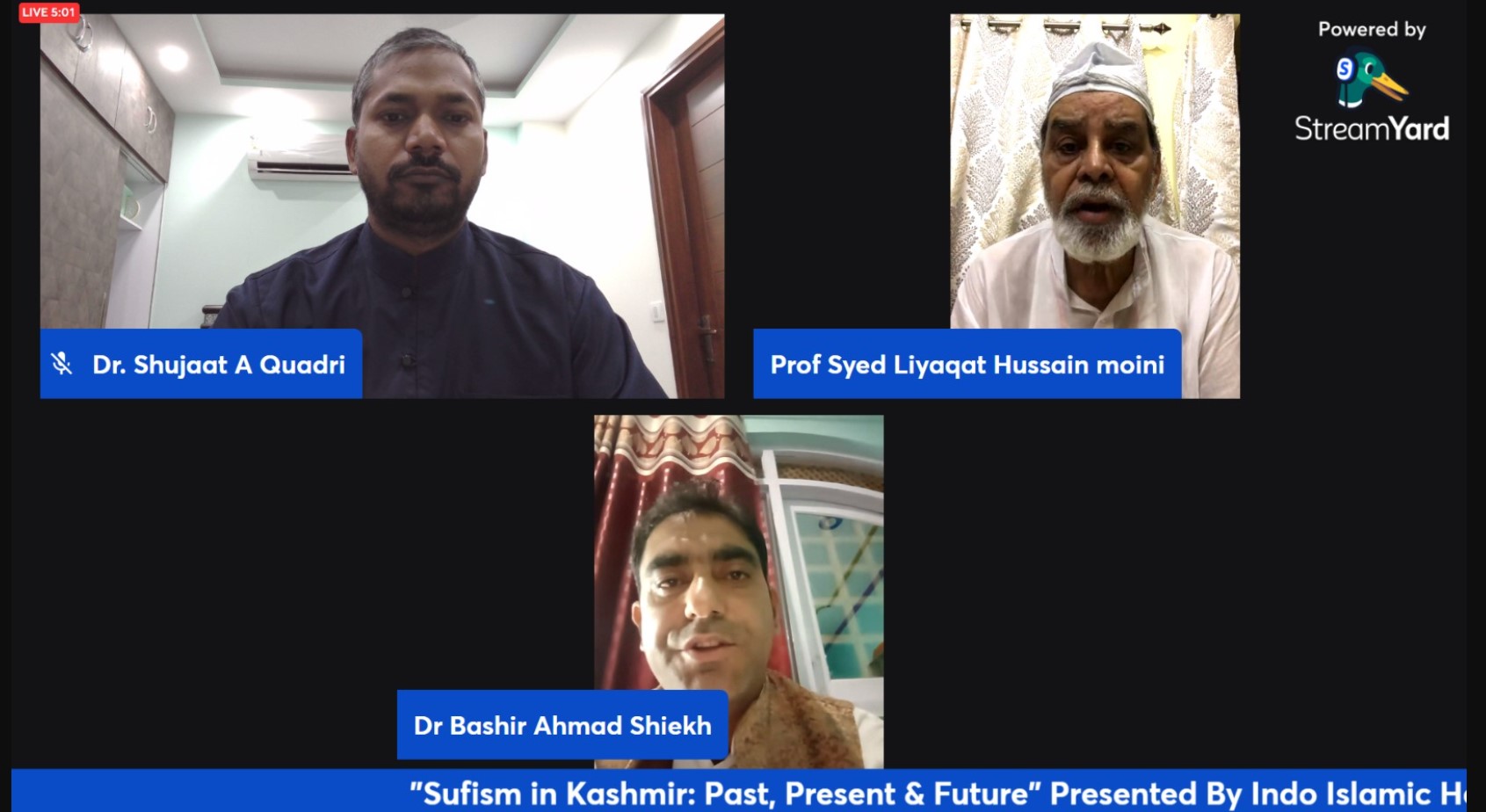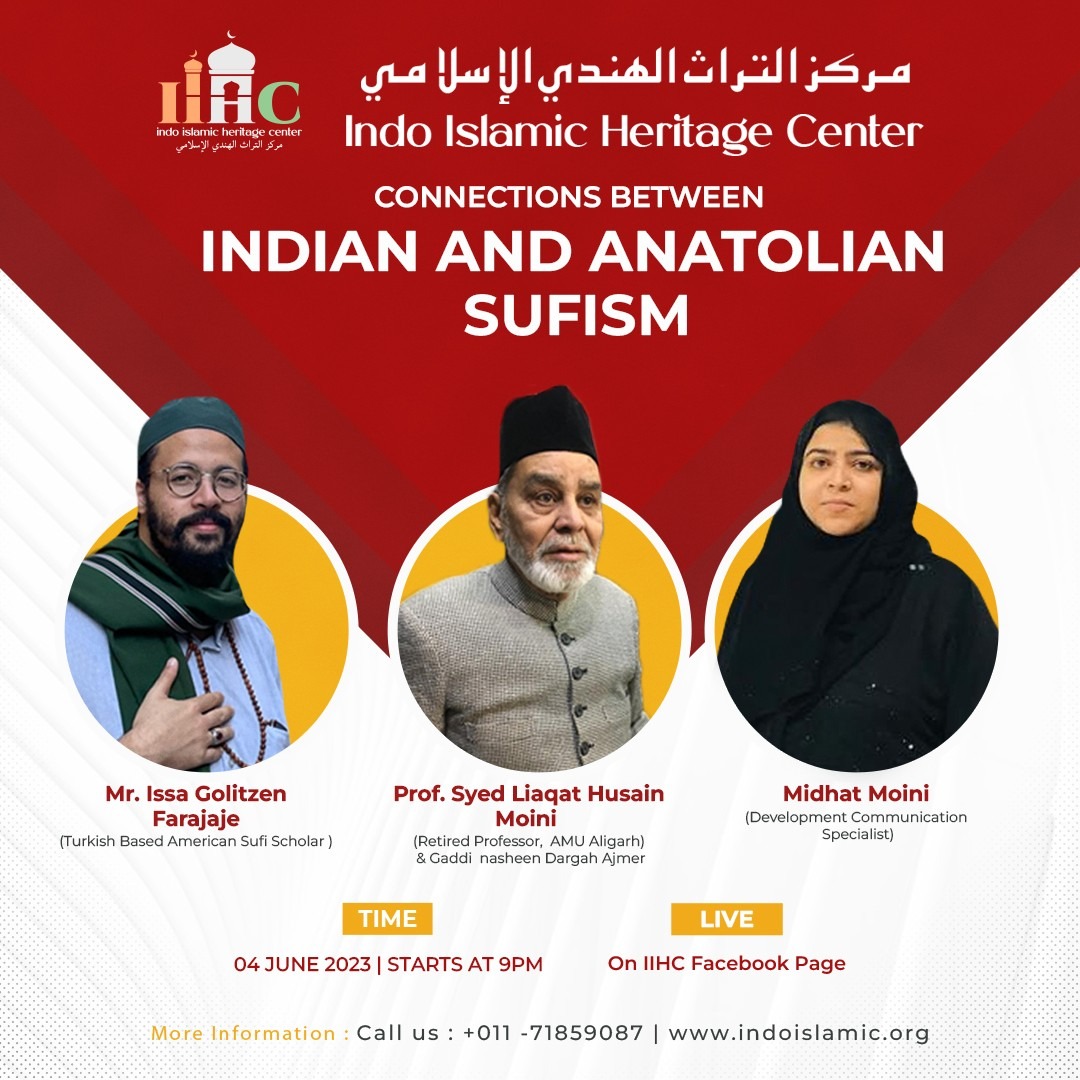New Delhi. “Sufism in Kashmir represents a rich spiritual and cultural tradition that has shaped the religious and social fabric of the region. It continues to inspire and guide people in their quest for spirituality and serves as a bridge between different faiths and communities but now foreign influence of Salafism in Kashmir has posed certain challenges to the traditional practices and beliefs of Kashmiri Sufism and Syncretic culture”. These word were said by Dr Bashir Ahmed Shaikh Assistant Professor of History of Government Degree College Kashmir in an Webinar “Sufism in Kashmir – Past, Present and Future” organised by Indo Islamic Heritage Center (IIHC).
Dr Bashir Shaikh said that Kashmir has a rich history of Sufism dating back several centuries. Sufi saints and scholars have played a significant role in spreading Islam and promoting peace, harmony, and religious tolerance in the region. Sufism in Kashmir has developed its unique characteristics, blending various cultural, linguistic, and religious influences. Some prominent Sufi saints who have had a profound impact on Kashmiri society include Sheikh Nooruddin Wali (also known as Nund Rishi or Sheikh-ul-Alam), Lal Ded (or Lalleshwari), and Sheikh Hamza Makhdoom. These revered figures are widely respected and venerated by people from different religious backgrounds, including Muslims, Hindus, and Sikhs.
He said that Sufism in Kashmir has also contributed to the literary and cultural heritage of the region. Many Sufi poets and mystics have composed beautiful poetry and songs that reflect their spiritual experiences and devotion. The teachings of Sufism emphasize love, compassion, and the pursuit of inner peace, which have influenced the local art, music, and literature.
“It is worth noting that the region of Kashmir has experienced political and social challenges, including conflicts and tensions. However, Sufism has often acted as a unifying force, promoting understanding, tolerance, and peaceful coexistence among different communities.” He added
Director of IIHC and Gaddi Nasheen of Dargah Khwaja Saheb Ajmer Shareef Prof (R) Syed Liaqat Husain Moini said that the rise of Salafism in Kashmir has also been influenced by geopolitical factors and external forces. The spread of Salafist ideology in the region is linked to financial support from external sources and the influence of transnational Salafi networks. These influences have led to a gradual shift in the religious landscape of Kashmir, with some individuals adopting more Salafist beliefs and practices, potentially impacting the dominance of Sufism. He said that Salafism has gained some following in certain pockets of the region, but the majority of Kashmiri Muslims still maintain strong ties to Sufi practices and beliefs. Sufi shrines and practices continue to be an integral part of Kashmiri culture and spirituality.
Host of the webinar Dr. Shujaat Ali Quadri said that The history of Sufism in Kashmir is spread over a long period of time starting from Bulbul Shah to the Sufi poets. Sufi saints are still inspiring people of Kashmir by their subtle mystical insights. The localized Rishi version of Sufi teachings, and a central figure in this regard was Shaykh Nooruddin, popularly known as Nund Reshi took this process to its logical conclusion.
Dr Quadri emphasizes that Efforts should be made to preserve and promote the teachings of Sufi saints through education, cultural events, and the revitalization of Sufi institutions.





